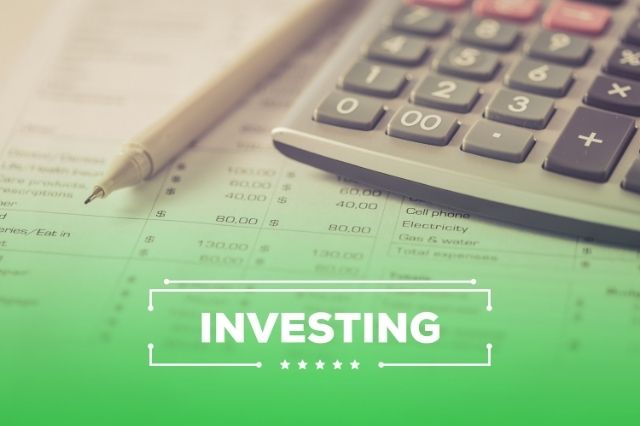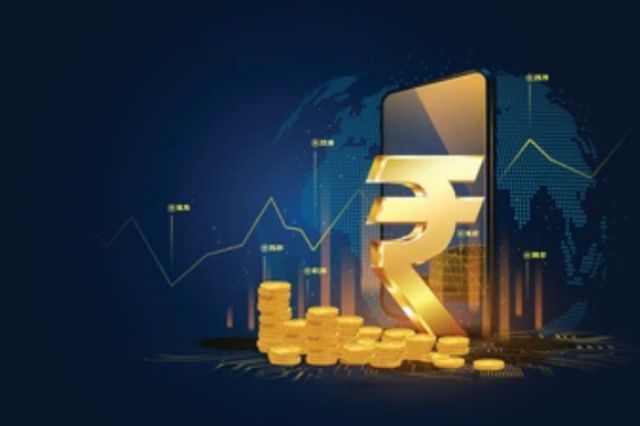Finance
Changes in Investing Ways – What Does the Future Hold?


Today, more people than ever before are investing. As a result of the COVID-19 outbreak, individuals received stimulus cheques and had more time to learn about new investment opportunities. After a short meltdown in March 2020, the S&P 500 ended up uprising more than 18 percent for the year, and roughly 15 percent of current retail investors started investing in 2020, which is a big factor.
As a potential disadvantage, possibly, the growing desire to invest in risky assets like meme stocks, cryptocurrencies, and NFTs may have contributed to the rise in interest. However, this isn’t necessarily a concern for the experienced investor because of recent changes in the market that have made investing appear more like gambling than it used to. In the end, is this a positive or a negative thing?
Changes in Payment Systems
More and more businesses are switching to cashless payment methods. Depending on the kind of business, these payment options might differ. Cash transactions at Square’s U.S. merchants, as a proportion of total transactions, plummeted from more than 50% in 2015 to roughly 30% now, according to Square research. Those figures reflect an 8.3 percentage point reduction in the last year alone.
You’ll need a bank account if you wish to do any transactions online. PayPal and Square, two consumer fintech startups, are attempting to give bank-like services (and more) to that market.
Recently, management at PayPal spoke about its aspirations to transform the digital wallet into a financial super app during an investor day. Services like high-yield savings accounts and electronic bill payments will be offered instead of those provided by conventional banks in the future. As a result, the company plans to increase its focus on in-store payment options in 2020.
It should be noted that as there are many cashless transaction methods PayPal has its rivalries and this is especially true in the case of the Forex market. The main thing about the FX market is that it is the world’s largest financial market where traders can get the most out of their trading process. However, in order to start trading investors need to find reliable Forex brokers. One of the favorite payment methods for Forex traders is Mpesa, which allows them to transact money with the use of mobile phones. Mpesa is extremely popular in African countries and for this reason, many traders search for mpesa forex brokers, in order to get the services and benefits that are useful for their trading strategies. Fintech businesses could benefit from an increase in cashless transactions. They will be able to expand their user bases and add new items to their digital wallets, opening up new income streams. If you’re not interested in the more venerable fintech at the heart of cashless transactions, you could be interested in the more up-and-coming startups.
With Visa and Mastercard, customers, merchants, processors, and banks can all communicate with each other more easily. Whenever you use a credit card, it’s these firms that handle the transfer of funds without a hitch.
Around 80% to 85% of all payment cards have Visa or Mastercard logos on them, making them the dominant debit card processors. Together, they’ve accounted for nearly 75% of all recent card transaction volume.
Having a broad payments network is vital since it has high fixed costs, but low marginal costs for further transactions. To take advantage of this expanding trend, Visa and Mastercard currently have all the necessary agreements in place. As a result, as volume rises, it very immediately impacts the bottom line.
Fidelity National Information Services (FNIS) and Fiserv are two of the most prominent players in the rapidly consolidating industry. In addition, banks, merchants, and other financial institutions that utilize these processors have substantial switching costs, making it advantageous to maintain market dominance.
As a result, Fidelity National and Fiserv can provide cheaper pricing while maintaining good profit margins since processing payments requires high fixed costs and low marginal expenses. As a consequence, large corporations continue to grow and gain an edge by acquiring smaller rivals.
Investing Democratization
Investing used to be a privilege reserved for the well-off until a few generations ago. Those days are gone. Your local plumber now has a more impressive resume than the CEO of your business. As a result of the deliberate democratization of publicly-traded financial markets, this has all occurred.
Not everyone can or should invest in the stock market, but this does not imply that everyone can or should. Every investment has some level of danger. In the current pandemic-erratic economic time, not all potential investors want to cope with market changes. People who have never invested may be surprised by how inviting the world of investing can be to those who have. All newcomers, regardless of their wealth or status, are welcome to join.
A retired ophthalmologist who invested his own money has a billion-dollar fortune to show for it. By using the “tortoise” strategy, he was successful in building his fortune despite his upbringing as an impoverished child with special needs.
De-mystifying investment may be found in Carine M. Schneider’s newly released book entitled The Democratization of Private Markets, which she attributes to technological improvements. As Schneider points out, new platforms and methods have made it possible for qualified investors from all around the globe to participate in private firm markets.
Investment possibilities in private markets might be difficult to uncover for those who want to invest in the private sector (and who are eligible). Private business shares may now be sold and bought in several venues, according to Schneider. To put it another way: if you’re looking to purchase or sell anything online, it’s no longer about your friends and neighbors. All eligible investors may now access these markets considerably more easily. Additionally, websites exist to assist you to avoid regulatory issues and save money on legal bills.
Of course, you’ll want to do some research to find the best investment portals for your interests and compare transaction fees. Before entering any personal information into an investment system, be careful to check reviews. As a result, you’ll be better guarded.
Investing has benefited from the worldwide pandemic, whether you believe it or not. Millennial and Generation Z investors are putting money into the market. Businesses are better able to reach their intended audiences with innovative concepts because of millennials’ eagerness to spend immediately. The market continues to develop despite the epidemic and global supply chain issues.
As of December 3, 2021, the Dow Jones Industrial Average (DJIA) index has rebounded to 34,580.08 points following a loss of 8,000 points between February 12 and March 11. The DJIA index was slightly over 29,000 points in February 2020, right before the worldwide coronavirus (COVID-19) epidemic began.
To get started, there are additional sites like Robinhood and Stash that cater to the average investor. Investing in publicly traded companies just needs a little sum of spare cash. What is the exact monetary value of a ‘bit’? With only $500, NerdWallet estimates that you can begin investing in stocks. To invest in private enterprises, you’ll need a lot more money, but the number of platforms that allow this kind of investment is increasing.
The ability to access investment information at any time and from any location is just another advantage of always having a computer in your pocket. When it comes to making investments widely available, education is key, according to the Milken Institute. Education is plenty. It claims that “democratizing finance” might be achieved by asking investors to devote their time, energy, and attention to self-directed learning activities including viewing films, reading reports, and listening to podcasts.
JMP Securities predicted that the brokerage sector will see roughly 10 million new customers in 2020, with more than 6 million of them migrating to the Robinhood app. With tools like fractional shares, IPO access, and commission-free trading, investors no longer need a financial advisor to make investments.
Micah Carnahan, a crypto and fintech expert at Finder.com, noted that “investment opportunities have risen tremendously” in the digital age. Today, “the typical citizen is no longer reliant on major investment organizations to handle their portfolios,” says a financial expert. That independence, though, comes with a lot of danger.
A CFP and consumer advocate, Scott Alan Turner, summarizes the present scenario thusly:
To be a long-term investor, you need to have lost half or more of your assets, he added. Turner remarked that during the last decade or two, most individuals have come to feel that they are excellent investors. But not because they are, but rather because the price of almost everything has risen in recent years. “Those who have been through a few market crashes have a better understanding of risk and reward.”
But if you’re going to put your money in danger, he added, you should wait until you’re younger or just starting. It’s okay if you make a few huge blunders, he assured her. More individuals can now afford to participate in many asset classes, thanks to the new low-cost investing model introduced by this new age of investing. Individuals may now construct their wealth-building plan without having to pay a financial counselor or broker to do so.
Finance
How Cash Buying is Reshaping the Property Selling Process


In recent years, the dynamics of the property market in the UK have undergone a significant transformation, with the rise of cash buying playing a pivotal role in reshaping the traditional property selling process.
This shift has introduced new opportunities and challenges for sellers, buyers, and industry professionals alike, streamlining transactions and altering expectations on both sides of the market.
The Rise of Cash Buying
Cash buying, where a property is purchased without the need for a mortgage, has become increasingly popular. This method offers a stark contrast to the traditional, often lengthy process of property acquisition, which typically involves securing a mortgage, undergoing extensive credit checks, and navigating a maze of legal requirements.
Accelerated Transaction Times
One of the most appealing aspects of cash buying is the significant reduction in transaction times. Without the need to wait for mortgage approvals or navigate the bureaucratic hurdles associated with loan acquisition, cash transactions can often be completed in a fraction of the time required for traditional sales.
This speed and efficiency are not only beneficial for buyers, eager to move into their new homes, but also for sellers who are looking to complete the sale swiftly and with minimal fuss.
The Impact on Market Dynamics
Cash buying has also had a profound impact on market dynamics, particularly in highly competitive areas. Sold online estate agents London captures the essence of the digital transformation in the property market, where platforms now facilitate rapid, direct transactions, often involving cash buyers.
This shift has led to increased liquidity in the market, enabling quicker sales and often resulting in closer to asking price offers, as the traditional barriers to sale are removed.
The Changing Role of Estate Agents
The rise of cash buying has necessitated a change in the role of estate agents. No longer just mediators between buyers and sellers, agents now must navigate a landscape where speed, efficiency, and an understanding of cash transactions are paramount.
Estate agents are increasingly leveraging online platforms to match cash buyers with sellers, streamlining the process, and offering a more dynamic service tailored to the modern market’s needs.
Digital Platforms and Market Access
Digital platforms have become crucial in connecting cash buyers with sellers, offering a broader reach and access to a wider array of properties. This digital shift has democratized access to the property market, allowing for a more inclusive range of participants, from seasoned investors to first-time buyers looking to avoid the traditional mortgage route.
Benefits and Considerations for Sellers
For sellers, the appeal of cash buying is clear: quicker transactions, reduced risk of sales falling through, and the elimination of chain dependencies. However, it’s essential for sellers to conduct due diligence on their prospective buyers, ensuring that funds are verified and the transaction is secure.
Navigating the Future Landscape
As the property market continues to evolve, both sellers and buyers must adapt to the new norms introduced by cash buying. For sellers, understanding the benefits and potential pitfalls of cash offers is crucial. For buyers, the ability to move quickly and secure properties without the need for mortgage approval can be a game-changer, particularly in competitive markets.
A New Era for Property Transactions
The shift towards cash buying is indicative of a broader trend towards efficiency and speed in the property market. As technology continues to advance, we can expect further innovations that will streamline the buying and selling process, making it more accessible, efficient, and transparent for all parties involved.
Beyond the Conclusion: A Glimpse into the Future
As we look towards the future, the landscape of the property selling process will continue to be shaped by the trends of cash buying and digital transformation. This evolution promises a more streamlined, efficient, and flexible market, where opportunities abound for those willing to adapt and embrace the new paradigms of property transactions.
Finance
Everything You Need to Know about SVG Permit When Making a Decision


Many companies strive to simplify the process of receiving a work permit, so they prefer offshore jurisdictions.
SVG offers favorable legislation, low financial costs for getting an SVG Forex license, and a favorable tax policy. If you plan to engage in brokerage activities in the market, you will need to obtain a permit and meet the Regulator’s demands.
How does permitting control work?
The FSA exercises control over non-banking companies and helps ensure stability through a competent assessment of possible risks associated with firms’ activities. Through monitoring and on-site audits, the FSA regularly analyzes various financial indicators and checks organizations’ reporting for compliance with established demands.
The state has many legislative documents that form the legal basis for providing financial services. Let’s list some of them:
- Financial Services Management Law – regulation of financial activities and issuance of licenses;
- Securities Law – controls the activities of firms whose activities are related to the trading, issuance, and exchange of securities (including the Forex market);
- Memorandum of Requirements for BC and LLC – defines the demands for organizations in the Forex market;
- Law on International Business Companies – controls the activities of firms, including in the market;
- Currency Control Act – regulation of foreign exchange financial transactions and supervision of compliance with established demands.
It is only part of the legislative framework. There are also laws to combat AML/FT, ensuring cybersecurity and protecting consumers from financial risks.
Demands
To obtain a permit, you must fulfill several demands. Your firm must have at least 1 director, 1 shareholder, and a secretary. One of the directors must be a resident of this area. You must register a firm office and give the company a unique name using the LLC form. You must also present valid licenses from the states where the organization provides financial services. It is critical to comply with local legislation and include an AML and KYC (know your customer) policy in the company’s activities.
Stages of starting a firm
Let’s consider what stages an organization will need to go through to register the legal activities of a broker in this area.
Decide on the firm name
The company name must be unique and not appear in the SVG company register. In addition, the company abbreviation must imply the LLC form, and Limited or Ltd must be added at the end of the name. Using a name that would indicate royal or government institutions is strictly forbidden.
Collect a package of papers
In the first stage, your firm will be required to provide papers, which will include the following:
- fill out an application for a permit;
- notarized identity cards, confirmation of registration, and certificate of good conduct for the company’s staff;
- corporate documents;
- office lease agreement with a registered legal address;
- a detailed business project indicating the structure and activities of the company;
- a document confirming the availability of sufficient financial resources;
- implementation of internal control (AML, KYC, audit, reporting).
Also, at this stage, it is necessary to pay the state licensing fee (225 euros) and the annual fee (4000 euros). Before submitting the application and papers, carefully study the requirements of the Regulator.
Apply for business registration
Next, you register the firm in the Register of Companies based on the requirements. The registration process can be completed remotely within a few days. The application and the collected package of papers are sent to the Regulator, who will carefully check them for compliance. If there are inaccuracies, the regulator may request additional data.
Open a bank account
The next step will be to open a corporate account for the firm. It would be best if you chose a bank that meets your financial demands, supports the activities of brokers, and follows the AML policy.
Obtain permission
If the regulator is convinced of the reliability of your business and he has no comments regarding the provided papers, you will receive a permit.
Finance
Indian Rupee Refuses to Budge Despite Multiple Headwinds


Despite several challenges, the Indian rupee has remained stable in global finance. Despite global economic turbulence, the Indian currency’s exchange rate of 83.26 against the U.S. dollar has been stable. The rupee has survived rising U.S. bond yields, oil price volatility, the strength of the U.S. currency, and large investment portfolio outflows.
The Indian rupee’s resiliency is due to the RBI’s planned and methodical foreign exchange market actions. The RBI’s aggressive measures have stabilized the currency and reduced volatility. The rupee’s resilience shows how central banks like the RBI protect currency stability in the global financial climate. The essay discusses the factors that keep the rupee stable and the foreign exchange market’s complexity, which affects its stability during global economic downturns.
What is Forex’s Role in the Rupee’s Resilience
The Indian rupee has shown resilience in the complex world of forex. The currency’s exchange rate against the U.S. dollar is 83.26. With few fluctuations from its previous closing rate of 83.2550, this currency has shown consistency. In October, the rupee stayed inside a narrow trading range, with volatility at its lowest in years. The Reserve Bank of India’s proactive initiatives helped the economy weather numerous obstacles. In this perspective, FX markets are important.
The RBI has successfully intervened in spot markets, non-deliverable forwards, and futures using intentional and systematic tactics. These efforts have stabilized the Indian rupee and reduced volatility. These initiatives help maintain forex market equilibrium by limiting external impacts on currency valuation.
Despite rising U.S. bond yields, oil price fluctuations, the U.S. dollar’s strength, and major investment portfolio withdrawals, the Indian rupee has mostly avoided major losses. Foreign exchange scholars credit the Reserve Bank of India’s (RBI) consistent management of foreign exchange markets and stability for the rupee’s continuous appreciation. These metrics are mostly noticed in the worldwide foreign exchange market, which affects currency exchange rates.
The endurance of the Indian rupee and the RBI’s active forex market measures demonstrate the importance of this in national and global economies. These interventions provide market equilibrium and resilience during economic downturns, protecting the indigenous currency. Despite economic concerns, the Indian rupee remains a strong and resilient participant in the global foreign exchange market.
The rupee’s durability shows the complexity of foreign exchange markets and the importance of central banks like the Reserve Bank of India in maintaining currency stability. Foreign exchange (FX) is a major player in global finance.
Investor Sentiment and Risk Assessment
Investor sentiment and risk assessment depend on the Indian rupee’s resilience. Investors prefer the rupee’s stability during volatility due to its predictability. Investors prefer stable currencies, and the rupee’s resilience can boost investor confidence. Currency stability reduces investor fear, making India a desirable destination for money.
The currency’s ability to survive bad conditions may also improve risk assessment. In a world with global economic problems, a resilient currency is good. The rupee’s strength gives investors confidence, reducing currency volatility risks. In general, currency stability boosts investor sentiment and risk assessment, making India an appealing option for foreign investment.
Impact of Rising U.S. Yields and Economic Dynamics
The Indian rupee confronts a major challenge in the complex forex markets as long-term U.S. yields rise. The upward trend is primarily due to supply and demand pressures and the expectation that the Federal Reserve will keep interest rates high. Recently, the 10-year U.S. yield breached 5% and is now around 4.87% in Asian markets.
So, what is forex’s importance in this scenario?? Understanding the procedures requires focusing on foreign exchange. US yields, which affect foreign currency markets, affect currencies worldwide, including the Indian rupee.
The rise in US yields has changed risk perception, affecting worldwide finance. Foreign investors’ risk aversion has increased due to rising yields, affecting their investment decisions in emerging economies like India. In one month, foreign money outflows approached $2.5 billion. The significant capital outflow suggests investors’ reactions to global interest rate changes and a drive toward safer assets.
Do not underestimate this phenomenon’s impact on the FX market. Increased U.S. yields affect global investors’ portfolio preferences and risk evaluations. Foreign currency markets help move and adjust capital. The Indian rupee has persevered despite substantial challenges as currency traders and investors navigate the current economic climate.
The rise in long-term U.S. yields affects global currencies in foreign exchange and finance. This trend affects the foreign currency market, where currencies like the Indian rupee must maintain stability amid fluctuating global interest rates. The phenomena highlights the importance of foreign exchange (forex) in understanding and navigating the complex interaction of economic variables that affect currency value and strength worldwide.
The Middle East Conflict and Oil Price Volatility
Oil price volatility and the Middle East conflict have made the Indian rupee less stable. Brent crude recently rose 3%, causing prices to rise on Friday. The rupee’s exchange rate volatility has changed. Given India’s heavy reliance on oil imports to power its growing economy, these oil price trends are crucial. Thus, oil price variations directly affect the nation’s trade balance and the rupee’s worldwide currency strength.
What is forex’s role in understanding and addressing these dynamics? Forex trading, or the foreign currency market, is crucial here. Economic dynamics induced by oil price volatility and Middle East upheaval affect the rupee. The foreign exchange market reflects these factors.
The prolonged Middle East conflict has heightened tensions in a geopolitically dangerous region and caused a global ripple effect. Global market uncertainty is obvious and significant. It has caused oil price fluctuations and lowered market confidence. Capital outflows from Indian stocks have resulted from international investors’ conservatism due to market volatility.
These advances are important for foreign exchange trading. Geopolitical concerns and commodities like oil affect currency valuations, making forex markets vulnerable. Forex traders must carefully assess these dynamics to understand market volatility and predict currency fluctuations, especially in emerging markets like India.
Currency trading is even more complicated due to the Middle East conflict and oil price volatility. These factors affect currency values and stability, including the Indian rupee, beyond standard economic formulas. Forex dealers are realizing the Middle East crisis and oil price dynamics shape the forex market and the rupee’s durability. Forex is crucial to understanding and overcoming currencies’ many challenges in the global market.
Central Banks’ Policies and Outlook
The focus is currently shifting towards the forthcoming policy decisions of central banks worldwide. The Indian rupee’s stability depends on these decisions and their effects on global markets. In addition to the RBI’s strategic interventions, central banks worldwide’s decisions are expected to affect the rupee’s ability to absorb headwinds.
Financial markets will focus on central bank policies this week, including the BOJ, Fed, and BoE. These institutions are likely to make major financial decisions that could impact the world. These decisions, which affect currencies and trade balances, may affect the Indian rupee’s global currency market position.
Forex enthusiasts and investors are eagerly awaiting the BOJ policy pronouncement on Tuesday. This is because the central bank is considering raising its yield cap. The Bank of Japan (BOJ)’s actions could trigger market responses that affect the foreign exchange (forex) market.
Recently, the spotlight shifts to the Federal Reserve and its interest rate plans. The Federal Reserve affects currencies, trade patterns, and rupee stability in the worldwide foreign exchange market.
After the Fed’s decision, the Bank of England is expected to maintain its interest rate position on Thursday. The currency market pays attention to Bank of England (BoE) policies, despite appearing to agree with the Fed. The rupee’s stability depends on these central banks’ autonomous decisions and their combined effect.
The intricate dynamics of forex markets always raise the question of forex’s nature. Forex, or the foreign exchange market, is a key part of the global financial system and may adjust to central bank policies and their effects. Foreign exchange dealers, market participants, and policymakers will carefully scrutinize central banks’ speeches for hints and indications of their future actions.
Due to global currency influences, the Indian rupee is more sensitive to these events. Central banks, regardless of location, affect international exchange rates, particularly the rupee-U.S. dollar exchange rate. Policy decisions affect businesses, commerce, and daily life beyond theoretical economic notions. As India grows economically and trades globally, these international policy decisions affect the rupee.
The Indian rupee’s resilience is due to the complex interactions between global economic conditions, central bank tactics, and foreign exchange use. As the currency market reacts to central bank policy moves, the worldwide audience eagerly awaits their consequences on the Indian rupee. The rupee’s stability throughout difficult times shows its resilience and ability to adapt to the global economy. The forex market facilitates currency transactions, which has kept the rupee robust.
All in All
The rupee’s resilience amid economic hardships is a testament to its strength. RBI’s role in stability and volatility cannot be overstated. Despite the rapid rise in U.S. bond yields, oil price volatility, portfolio capital outflows, and the strength of the U.S. currency, the Indian rupee remains stable within a limited trading range, defying expectations.
With central banks worldwide preparing to reveal their policy options very soon, the rupee’s direction will be closely watched. The ongoing issues highlight the need for rigorous security protocols and law enforcement-crypto sector cooperation. A secure business environment is essential in a fast-changing world. This strategy protects user confidence and boosts ecosystem security, boosting its growth and resilience.
-



 Quotes4 years ago
Quotes4 years ago125 Inspirational Car Quotes and Captions to Celebrate Your New Car
-



 Growth4 years ago
Growth4 years ago188 Deep Hurt Quotes with Images
-



 Quotes3 years ago
Quotes3 years ago148 Romantic Love Quotes for Her from the Heart
-



 Quotes3 years ago
Quotes3 years ago185 Cute Boyfriend Quotes for the Guy You Love
-



 Quotes3 years ago
Quotes3 years ago141 Best Heart Touching Quotes about Love, Life, and Friendship
-



 Quotes3 years ago
Quotes3 years ago134 Time Flies Quotes for the Unforgettable Moments
-



 Quotes3 years ago
Quotes3 years ago122 Inspirational Kite Quotes That’ll Make You Wanna Fly Right Now
-



 Quotes4 years ago
Quotes4 years ago101 Powerful Black Women Quotes to Empower You







